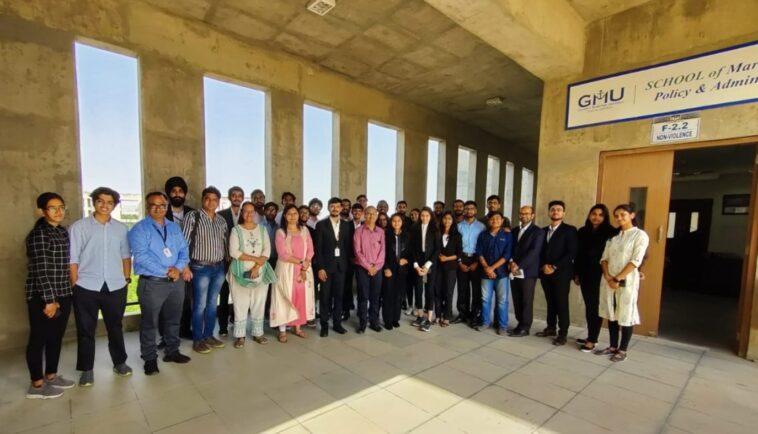How Will an MBA Inform the Future of Maritime Commerce

The maritime sector, which accounts for more than 80% of all world trade, is at the cutting edge of transformation where classical operations intersect with digital technology, sustainability, and global complexities. As shipping operators contend with decarbonization compliance, cyberattacks, climate change effects, and supply chain delays, the need for advanced management experts has never been more pronounced. An MBA in shipping management is the strategic driver that will lead maritime trade's future by building leaders with both business and specialist maritime capabilities.
Meeting Key Industry Skills Deficiencies
The maritime industry has severe skill gaps, with approximately 800,000 seafarers needing upskilling within the mid-2030s. Conventional maritime training, though ideal for operational functions, fails to provide the strategic business vision for senior roles. Marine shipping courses minimize this gap by coupling maritime-based knowledge with advanced management concepts, making professionals who have an understanding of both ship operations and corporate strategy.
Gujarat Maritime University's MBA program is a model of this development, tackling contemporary issues such as decarbonization, automation, and cyber-attacks with specialized courses in digital transformation, sustainable practices, and strategic management.
Driving Digital Transformation and Innovation
Maritime commerce is increasingly dependent on technological development, with developments such as autonomous ships, use of blockchain, AI-optimized routing, and smart port connectivity. MBA in shipping management trains individuals to manage these technological shifts by being aware of both the technical potentialities and business implications of digital technologies.
The curriculum covers artificial intelligence applications, cybersecurity measures, and blockchain deployments that improve transparency and efficiency in supply chains. Graduates are equipped with the strategic insight to adopt these technologies in an effective manner while addressing related risks and change management issues.
Managing Environmental Compliance and Sustainability
As greenhouse gas emissions from the shipping sector have increased 20% in the last ten years, sustainability compliance is now a business imperative. The International Maritime Organization's ambitious goal of reducing emissions by 50% in 2050 necessitates advanced knowledge of both regulatory systems and sustainable business solutions. MBA courses align environmental management, green finance, and green technology evaluation into mainstream curricula.
Students learn to overcome cumbersome environmental regulations, achieve operational efficiency, and ensure profitability. They gain knowledge that becomes crucial as businesses spend billions on alternative fuel systems, emission-reducing technologies, and sustainable shipping practices that will shape the future of the industry.
Creating Global Leaders with Commercial Expertise
The global character of shipping commerce requires managers with insight into international markets, regulatory regimes, and cultural backgrounds. MBA in shipping management education delivers this global insight in the form of international collaborations, exchange programs, and international case studies. MBAs are equipped with cross-cultural negotiation, international legal expertise, and competence to run businesses in several jurisdictions.
Career prospects range from port administration through shipping finance to logistics coordination and supply chain management optimization, with entry-level salaries well in excess of graduates of general business courses. The specialized education commands premium pay, as graduates in maritime MBA receive better packages than for conventional finance or marketing specializations.
Future-Proofing Maritime Commerce
As seaborne trade shifts towards more automation, environmental stewardship, and technological integration, MBA graduates will be the visionary architects of this change. Their blend of business skills and maritime knowledge equips them to guide shipping lines, port authorities, logistics companies, and marine technology companies through the next wave in the industry.
Universities which are leading the way in this educational method, graduating students who possess an understanding of conventional maritime operations and new business models. They will influence policies, implement innovations, and formulate strategies that make maritime trade efficient, sustainable, and profitable in a rapidly complicating global context.
The future of the shipping industry rests in its ability to steer both literal and metaphorical waters with equal acumen—and an MBA in shipping management offers exactly this twofold expertise.s







